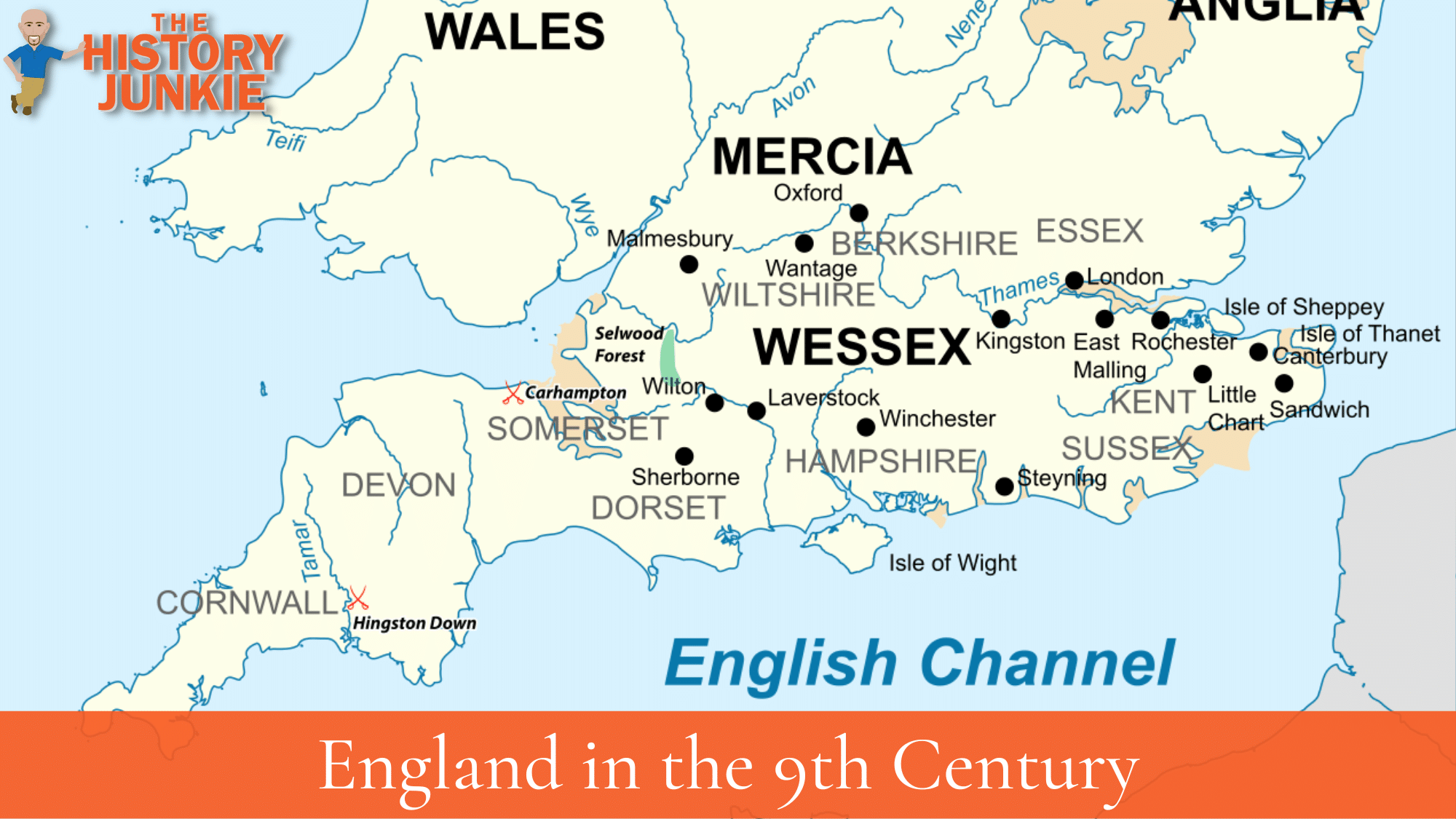King Alfred The Great was the last of his brothers in line for the throne, as he was the youngest. Each of his brothers ascended to the throne, and each of them died at a young age, which was common in this time period.

He would become the greatest Anglo-Saxon king.
Alfred ascended to the throne and had to deal with an ongoing Viking threat. They had gained in numbers under their leader Guthrum and had overtaken much of Mercia, which was an ally to Wessex.
Jump to:
The Vikings also defeated King Alfred the Great at Wilton, and more raids continued to badger the House of Wessex and Mercia.
The Vikings eventually overran Wessex, and Alfred sought refuge in the wetlands of Somerset. Here, he quickly assembled men and launched a surprise attack on Gurthrum. After Gurthrum's defeat, he was baptized, which averted any more attacks for the time being. Soon, he was able to take control of London.
King Alfred the Great used the interval of relative peace after the Battle of Edington to strengthen the military position of Wessex.
He divided the "fyrd" - the equivalent of a militia - into two, with one half being available for fighting at any one time. He substantially strengthened his naval forces. And, probably most important, he established a series of "burhs" - fortified settlements.

In 892, another Viking army started to attack Wessex, but while it inflicted some damage, the forces of Wessex, Mercia, and Wales managed to contain the threat, and Wessex was largely safeguarded.
Throughout Alfred's reign, he emphasized written records and began to implement laws. He was a strong believer in Christianity and used the Scripture as his guide.
He also began to push education on the ruling classes. Old English and Latin were taught, and this is when the written records were begun. He was able to bring in some of the more educated from Europe to create more stability.
King Alfred the Great accomplished much more than any king before him, and his influence would last for generations. He did so even though he was sick most of his life.
It is believed that he struggled with Crohn's Disease, which eventually contributed to his death.
Family Overview
He was the youngest son of Aethelwulf and from the House of Wessex. Each of his brothers would serve with their father, as did Alfred. Alfred also traveled to Rome with his father, which made a significant impact on him.
His brothers each ascended to the throne but died young and eventually left the throne to him.
He married his wife Ealhswith of Mercia, which helped unite Wessex and the northern city. The couple had five children who survived to adulthood, with each playing a role in their father's kingdom. His eldest son, Edward would become a great king, and his eldest daughter would become a dynamic leader.
His influence in religion, education, and defense would help the English survive for future generations.

Family Tree Chart
Parents:
Aethelwulf Wessex (800 - 858) - His reign was characterized by an intensification of Viking attacks. He and his first wife had 6 children.
Osburh of Wessex (810 - 856) - There is not much known of her except that she is mentioned in Asser's Life of King Alfred.
Spouse:
Ealhswith Mercia (850 - 902) - She married the future King Alfred and had 5 children. Three of them married into or became future leaders of Wessex, Flanders, and Mercia.
Children:
Aethelflaed Wessex (870 - 918) - She married Mercia and became known as the "Lady of the Mercians." When her husband became ill and died, she took over as leader of the Mercians and improved their defenses. She also worked with her brother Edward to build fortifications against the Danes.
Edward the Elder (871 - 924) - He squashed the Viking incursion and began to unify all of England under a central leader. He had three wives and many children.
Edmund Wessex (873) - He died in childhood
Aethelgifu Wessex (875 - 896) - She was the first Abbess of Shaftesbury Abbey, which her father founded. He left her property in his will.
Aelfthryth Wessex (877 - 929) - She married a count of Flanders who had a mutual interest in protecting their lands against Viking raiders.
Aethelweard Wessex (880 - 922) - There is not much known about him except that he had some children. His son Turketul would serve as chancellor for Aethelstan.
Siblings:
Aethelstan Wessex (825 - 854) - He was the eldest son and a sub-king of Kent. He won the first recorded English naval battle and died shortly after.
Aethelbald Wessex (835 - 860) - The kingdom of Wessex was divided into two, with Aethelbald controlling western Wessex. After the death of his brother, Aethelbald took control of all of Wessex.
Aethelberht Wessex (835 - 866) - He followed his brother Aethelbald as ruler of Wessex. He incorporated the kingdom of Kent fully into Wessex.
Aethelred Wessex (840 - 871) - He ascended to the throne after the death of Aethelberht and fought more incoming Viking invaders. He and Alfred won an important victory at the Battle of Ashdown, only to be defeated again at Meretun. He died in 871, leaving Alfred as the new King of Wessex.
